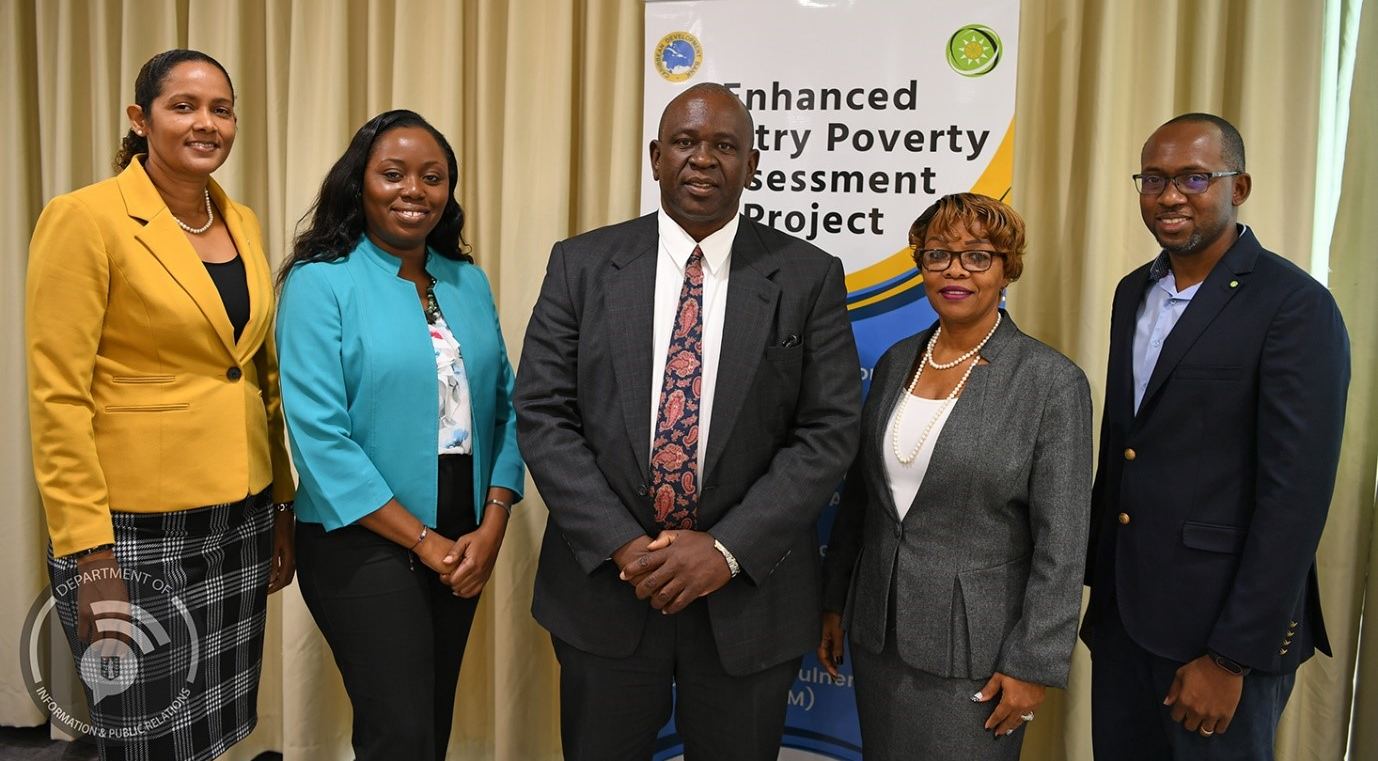National capacity building for the Enhanced Country Poverty Assessment (CPA) Project continues in the OECS
OECS Media Statement
The OECS Member States of Grenada and the British Virgin Islands (BVI) were the latest recipients of capacity building training being carried out by the OECS Commission in support of the Enhanced Country Poverty Assessment (CPA) implementation.
The Commission’s support covered sensitisation/orientation sessions with the National Assessment Team (NAT), specifically on the Macro Socio-Economic Assessment (MSEA), Institutional Analysis (IA) and the Participatory Poverty Assessment (PPA).
Two one-day capacity enhancement training activities were held on 28 February and 15 March 2019, in Grenada and the BVI respectively. The events targeted members of the NAT, given the NAT’s critical role to guide the implementation of all components of the Enhanced CPA.
The objectives of the workshops were:
- To orient stakeholders involved in the implementation of the CPA to the methodologies and approaches of the five components of the Enhanced CPA model, with specific focus on the Macro Socio Economic and Institutional Analyses;
- To highlight the roles and responsibilities of the NAT;
- To ensure the stakeholders are adequately sensitised to gender mainstreaming and to use this understanding to analyse and gender-disaggregate the results of the Enhanced CPA;
- To introduce the data capture tool for the institution survey (Grenada only);
- To provide technical guidance on the preparation of the budget for the other components of the Enhanced CPA including costs associated with the NAT (Grenada only); and
- To review the importance of GIS vulnerability mapping in the Enhanced CPA (BVI only).
The content for each workshop was customised to meet the specific needs of the NAT in each beneficiary country.
The workshop in Grenada, which focused on the introduction of a data capture tool, was facilitated by Geraldine St Croix, Project Coordinator and Mrs. Amonia Paul Rolle, Social and Gender Analyst. The workshop in the BVI focused on the importance of GIS vulnerability mapping and was facilitated by Sinovia Moonie, Research and Survey Statistician; Christopher Williams, GIS Specialist; and Mrs. Amonia Paul-Rolle, Social and Gender Analyst.
The delegation from the OECS Commission, which facilitated the training in the BVI, later met with the Minister and Permanent Secretary for Health and Social Development for an in-depth discussion on opportunities for further technical cooperation.
Minister for Health and Social Development in the BVI, Hon. Carvin Malone, speaking at the opening of the workshop, assured members of the NAT of his full support for the project and emphasised the importance of gaining a better understanding of the issues affecting people’s daily lives, particularly following recent disasters, in order to respond effectively.
The workshops form part of the ongoing support provided to OECS Member States to build national capacity to produce and disseminate data to measure the multi-dimensional aspects of poverty and living conditions.
 |
This story aligns with OECS Strategic Objective No.3: Promote and support equity and social inclusion; and leverage the cultural and linguistic diversity of the OECS. |


